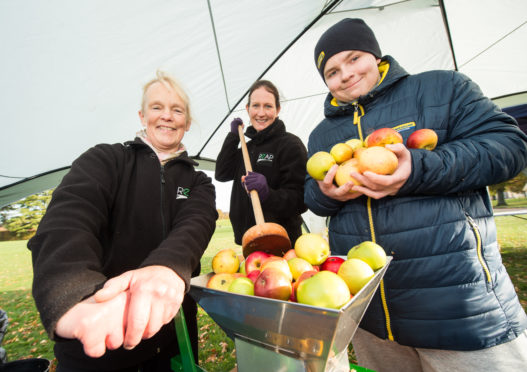More than 80 sites for communities to grow their own food have been identified in Moray.
Locations have been earmarked across the region in Elgin, Buckie and Forres as well as smaller towns and villages to create havens for produce as part of orchards, raised beds, vegetable patches and edible hedges.
It is hoped the initiative will help residents make healthier lifestyle choices while also supporting more sustainable food sources that have less impact on the environment.
Yesterday Moray Council agreed to begin a consultation about the scheme with land already identified in 19 separate communities to be part of it.
Keith-based charity Reap has already run projects across the region, including in schools, to teach people gardening techniques to grow their own food.
Manager Ann Davidson said: “In South Lesmurdie in Elgin and Den Crescent in Keith people have really taken to it already and really enjoy it. However, some are reluctant to take things from a public space.
“We would love to encourage more people to get involved and grow things.”
She added: “People are now realising we need to tackle climate change, so much of these things are out of control but this is. Local produce is better for the environment because it has a smaller carbon footprint because it doesn’t travel so much.
>> Keep up to date with the latest news with The P&J newsletter
“We could all do with more fruit and vegetables in our diet. Stepping out the door and picking up a few lettuce leaves doesn’t have any food miles.”
Potential sites that are part of the strategy were identified after the council worked with NHS Grampian and Moray College UHI as well as Greenfingers, Moray Food Plus, Reap and the Elgin Allotment Association.
Once the final strategy is approved the locations will be protected from other developments as part of the planning process.
Council convener Shona Morrison said: “This initiative will help to reduce food waste, improve healthy eating choices and social interaction within communities, and support schools and nurseries to create food growing areas, linked to the curriculum.
“There’s evidence that gardening and access to outdoor recreational activities improves physical and mental health, and it’s been suggested that it could be a cost-effective health intervention to help address mental ill-health, dementia, obesity and more.”
